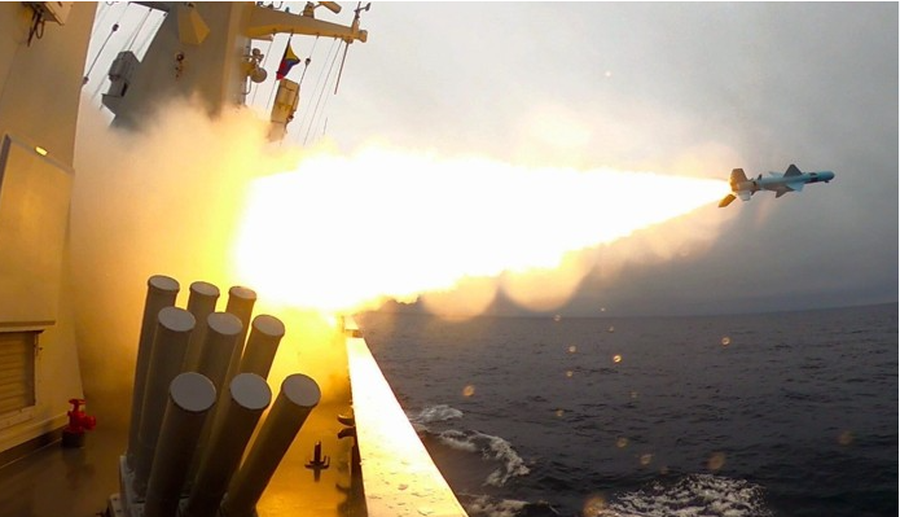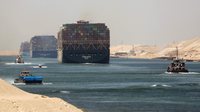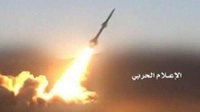
Another attack by Iran-backed Houthi rebels in Yemen, registered between the coast of Djibouti and the Bab al Mandab strait, between the Red Sea and the Indian Ocean, seems to have "broken the cup" for the Americans.
Although Tehran has denied cooperation, saying the Houthis are acting "independently", the United States today announced the creation of a 10-nation coalition in response to attacks on ships in the Red Sea.
"Countries seeking to uphold the fundamental principle of freedom of navigation must unite to meet the challenge posed by this non-state actor", said in a statement the US Secretary of Defense, Lloyd Austin.
Present in the coalition are Great Britain, France, Italy and Bahrain, which will join the multinational security initiative.
Washington's move indicates that Bab el Mandeb, which in Arabic means "Gate of Tears" (or of wailing) is likely to become the new Great Game where everyone risks losing.
The strait dominates the southern entrance to the Red Sea and is used by the Yemeni Houthi movement to threaten maritime traffic going to Israel or connecting to the Jewish state and beyond. We will not stop as long as Tel Aviv leads the offensive in Gaza, who launched attacks on several ships, including the Norwegian tanker, Swan Atlantic.
coalition
American Secretary of Defense Lloyd Austin arrived in the region to announce the birth of a multinational task force that will guarantee security. It will be called Operation "Prosperity Guardian" with command in Bahrain. In addition to the small state - an opponent of the Iranians - Great Britain, France, the Netherlands, Spain, Norway, Italy (with a frigate), Seychelles has already joined. It includes other countries that have preferred not to disclose their participation for diplomatic reasons. For example, the choice of the Saudis and the Emirates is unclear. They are alarmed by what is happening, but want to avoid re-opening the conflict with the Houthis, as they fear retaliation. The Egyptians have caught a bomb but have reservations about standing alongside the United States and Israel as the humanitarian tragedy unfolds in Gaza. However, General Sisi, confirmed at the head of the country, cannot afford long-term reductions in movements in the Canal, an important item in an ailing national budget. There are three Chinese units in the area, with support in Djibouti, a small country with numerous international bases, including an Italian one. However, Beijing did not lift a finger when there were requests for help from the captains who were targeted.
options
Washington does not want to open a new war front either. In addition to the fact that the threat of Yemen is very serious, it has a global impact and also shows the fragility of the "crossroads" such as Bab el Mandeb or Hormuz, in the Persian Gulf. So the Americans moved the Eisenhower aircraft carrier, several missile launchers and the amphibious assault unit Bataan towards the "Gate of Tears". What might the coalition's response include? Strikes in the port of Hodeida, a crucial resource for the Houthis, or in places used by the Shiites as attack platforms in the direction of the sea artery or even in military depots.
STRATEGY
The Yemeni faction is allied with Tehran, coordinates with the protector, but then does its own thing. It has the strength and toughness to become the Hezbollah of the South, a political-military component that everyone should keep an eye on. In particular, its neighbors, such as Arabia and the Emirates, with which it has long been at war. From a local power, thanks to the crisis in the Gaza Strip, the Houthis have transformed into a regional entity capable of influencing the passage through a waterway where a good part of the world's trade and oil cargo transits. Indeed, the raids have caused shipping giants to avoid this route, choosing instead to move goods across the ocean to the coast of Africa. This translates into higher costs, longer lead times, increased security costs and most importantly higher crude oil prices. Everything that is happening threatens many people and rather scares Egypt, since Cairo collects 9.3 billion dollars every year from fees for the passage of ships through the Suez Canal. Less cargo, less money in an economically disastrous country.
Tactics
Well-armed, capable of mobilizing over 100,000 men, the militants fired at long-range targets, attempting to send the drones over Israel, but the plan was halted after intervention by US, French, British and Israeli systems that destroyed most of the "kamikazes".
The second stage, repeated, is even more effective. The Houthis see the payload, force it to slow down with drones or spotters, then when it stops, they fire ballistic missiles, which are not always accurate. A few weeks ago they hijacked a ship in a helicopter maneuver, an incursion after the use of kamikaze drones. If they want, they can use more powerful anti-ship missiles, but also mines, motorboats equipped with missiles, explosive boats. They have multiple options, which allow for calibrated initiatives and in the meantime they test the equipment they have received from the ayatollahs in Iran. (A2 Televizion)














